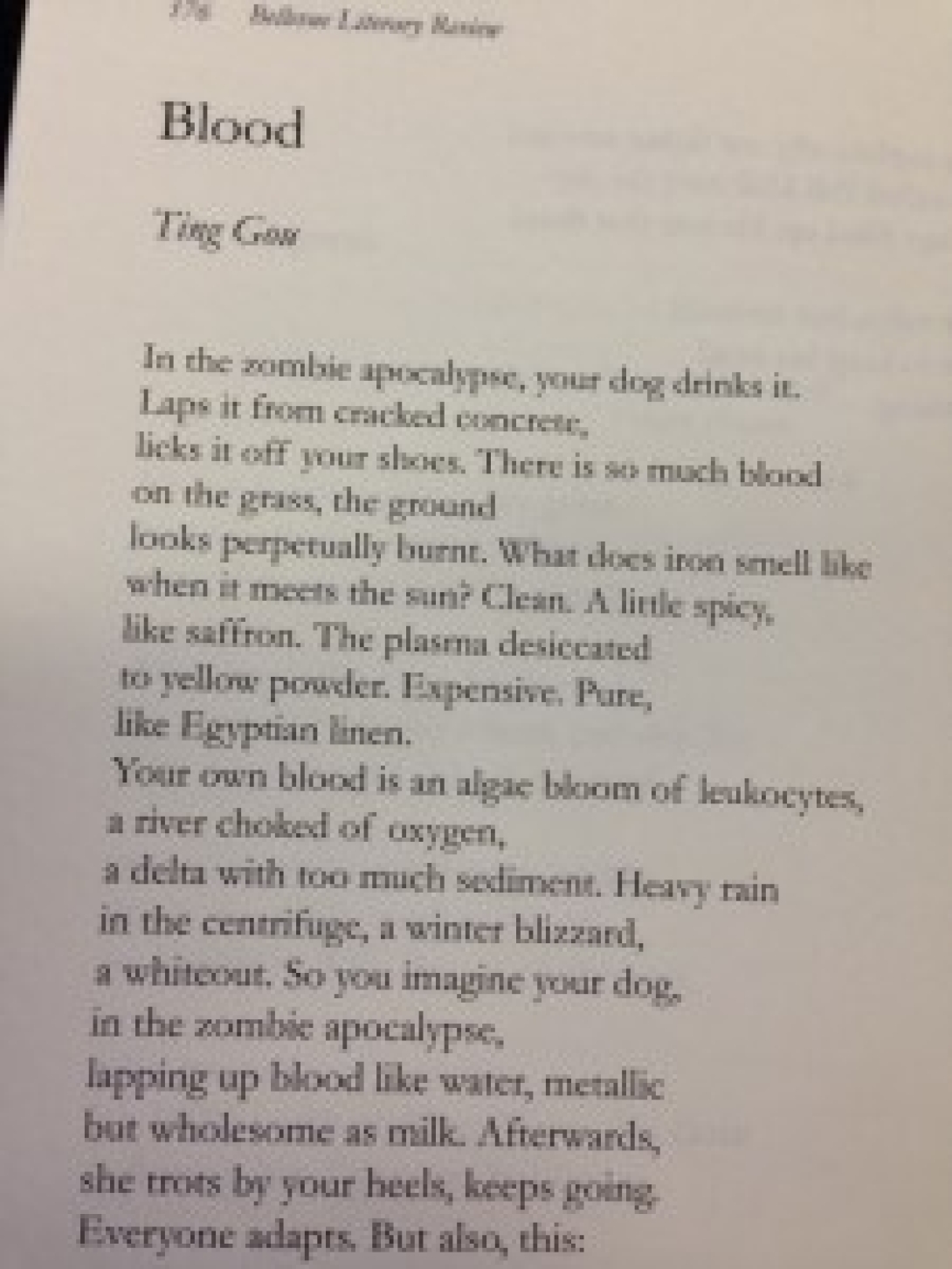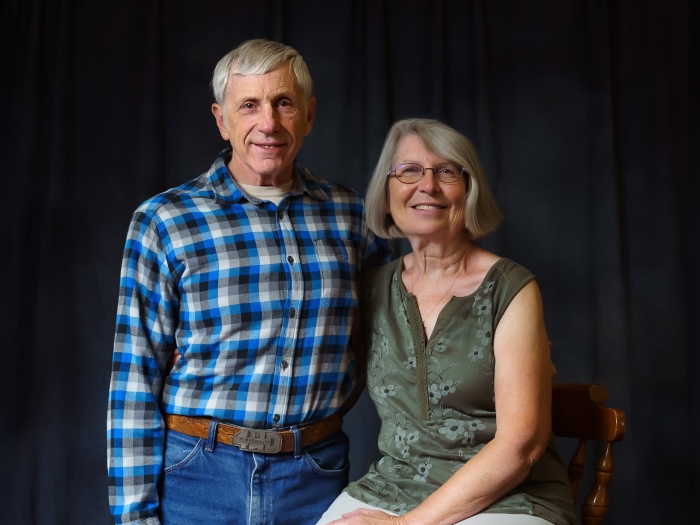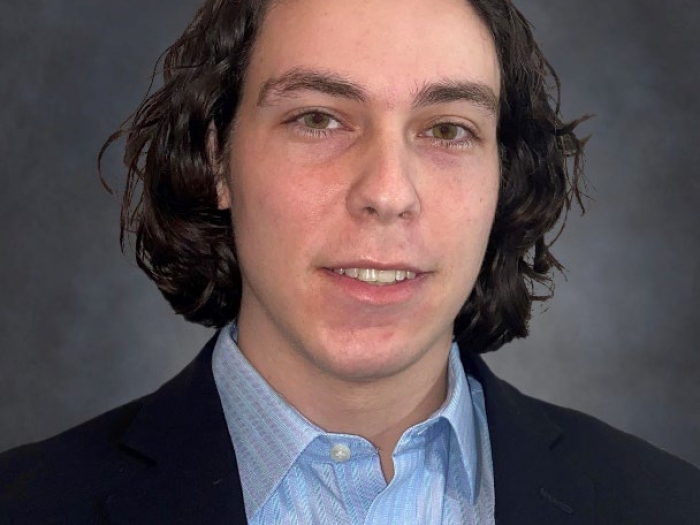You only have one lifetime to be yourself
is one quote I say over and over as go about my daily life as a med student. Where do I begin? Prior to med school, I had been a creative writing minor and bio major in college. I had attended a writing workshop at Sarah Lawrence the year before, been in a monthly poetry workshop group where people read and critiqued each others' work. I had studied poetry with some of the best poets and teachers. I knew I wanted to keep writing, but, of course, I didn't know if it was possible in med school.
The Pushcart Prize nomination (for "The Fig Wasp," a poem published when I was an M1) certainly helped boost my confidence. But what really kept me writing was an event, a tragedy on a personal level, that occurred just as M1 year was getting into swing. It forced me to reexamine how I interacted with the world, to acknowledge the importance of my own voice. Speak, or disappear. The choice was simple. Disappearing wasn't an option, so I started writing. As demanding as the first two years of med school were, I organized my time so I could set aside 30-60 min every night to read and write poetry. I had two goals: write to get better, and write to get noticed, the latter of which I felt was also necessary in order for me to get better--if people knew that I wrote poetry, maybe they could help critique my work.
Almost 2 years later, I can say I've achieved both goals. I definitely feel like my writing has improved, and I've connected with the editors of some amazing literary magazines via poems of mine they've published (all written, more or less, during my M1 and M2 years). Truly, the stuff of dreams.
I don't want to give you unrealistic expectations of how long and pedantic my futures posts are going to be, this being my first post, so I'll just leave you with some of my reflections on how things have turned/ are turning out:
Fight for your vision. Most people in medicine will not completely understand your passion or your vision in something like art or poetry (not that I completely understand my passion or my vision), but, if you advocate for yourself enough, if you explain your interest well enough in the context of medicine, they will support you.
Keep possibilities open. In my mind, poetry and medicine interconnect in so many different ways. I pick up any book of contemporary poetry, and there's writing about illness, disease, grief. You talk to any physician and he/she will admit that medicine isn't 100% algorithms. My personal goal? To make more people in medicine aware of the fact that poetry is complex, rooted in revision, not a solitary venture. That the process of analyzing a poem can help people see new possibilities in how to interact with patients, their families, and other health care workers. I know, it's very vague, but it's an idea that I want to continue to refine as a med student and beyond.
Don't be afraid to chart your own path. Medical school can feel a little predetermined at times, with the Steps and the Shelves and other words you'll never be able to hear the same way again. But I think it's worth it to ask yourself: By taking a little risk, what can I gain? What can I contribute? Can I afford not to try to push the boundaries of what is conventionally considered medicine? If the answer is no, then you're on the right path (take it from an M3: you're on the right path!)--even if you can't see your feet most of the time.
ps. Have (3/4) of a poem! Courtesy of the Bellevue Literary Review's twitter account.


Department of Communication at Michigan Medicine
Want top health & research news weekly? Sign up for Health Lab’s newsletters today!




